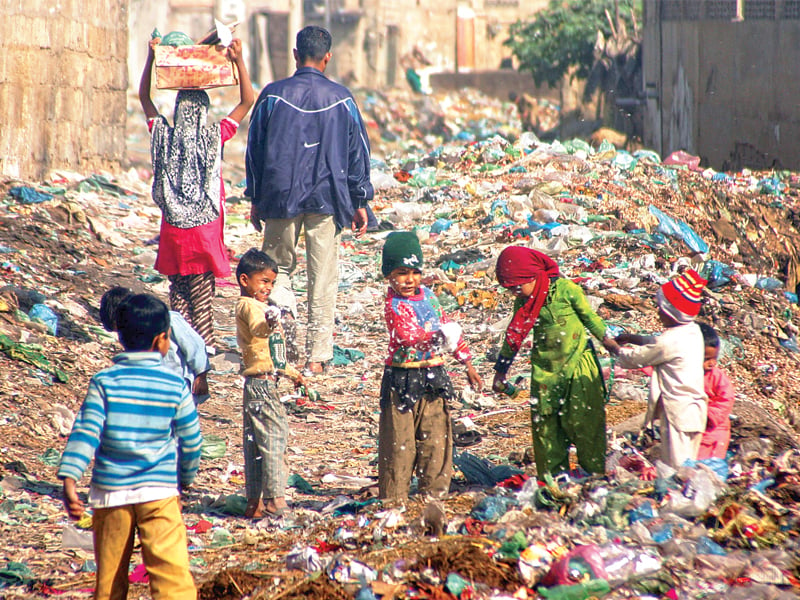Introduction
Solid waste management poses a critical and urgent concern in Pakistan, as the country grapples with the consequences of rapid urbanization and population expansion. The mounting waste produced in cities and towns presents substantial obstacles to effective management. This article will comprehensively examine the intricacies of solid waste management in Pakistan, delving into its significance, existing practices, encountered challenges, environmental ramifications, and viable solutions.
Solid Waste Management
Solid waste management refers to the systematic handling, collection, transportation, treatment, and disposal of solid waste in a manner that minimizes environmental pollution and promotes public health. It involves a range of activities, including waste segregation, recycling, composting, and safe disposal.
Importance of Solid Waste Management
Efficient solid waste management is crucial for the well-being of communities and the environment. It helps prevent the spread of diseases, reduces environmental pollution, conserves resources, and promotes sustainable development. Proper waste management also contributes to the creation of a clean and healthy living environment for all citizens.
Current Solid Waste Management Practices in Pakistan
Unfortunately, the current state of solid waste management in Pakistan leaves much to be desired. Most cities and towns lack proper waste management infrastructure, leading to haphazard waste disposal and accumulation. Open dumping, burning, and unregulated landfilling are common practices, resulting in the pollution of air, water, and soil.
Challenges Faced in Solid Waste Management
Several challenges hinder effective solid waste management in Pakistan. These include inadequate infrastructure, insufficient funding, lack of public awareness, limited capacity of municipal authorities, and inadequate coordination between different stakeholders. Moreover, rapid urbanization and population growth have added to the complexity of the problem.
Environmental Impacts of Poor Solid Waste Management
The environmental impacts of poor solid waste management are severe and far-reaching. Improper disposal of waste contaminates water bodies, degrades soil quality, and pollutes the air. It poses a significant threat to ecosystems, wildlife, and human health. The release of greenhouse gases from landfills and burning of waste also contribute to climate change.
Role of Government in Solid Waste Management
The government plays a crucial role in addressing the solid waste management crisis. It is responsible for formulating policies, regulations, and guidelines for waste management practices. Local authorities need to be adequately empowered and provided with resources to implement effective waste management systems. Collaboration between different government departments and agencies is essential for success.
Initiatives and Solutions for Effective Solid Waste Management
To tackle the challenges, various initiatives and solutions need to be implemented. Waste segregation at source, promoting recycling, establishing waste treatment facilities, and adopting modern technologies can significantly improve waste management practices. Public-private partnerships and involvement of non-governmental organizations (NGOs) can also bring about positive change.
Recycling and Waste Segregation
One of the key strategies for efficient waste management is promoting recycling and waste segregation. Encouraging citizens to separate recyclable materials from the general waste stream helps reduce the volume of waste going to landfills. Establishing recycling centers and providing incentives for recycling can further incentivize this practice.
Public Awareness and Education
Creating awareness among the general public about the importance of solid waste management is crucial. Educational campaigns, workshops, and community engagement programs can help instill responsible waste management practices. School curricula should include waste management topics to educate the younger generation about their role in creating a sustainable future.
Role of Private Sector and NGOs
The private sector and NGOs have a vital role to play in solid waste management. Private companies can invest in waste treatment technologies, establish recycling facilities, and provide innovative solutions for waste management. NGOs can contribute by raising awareness, implementing community-based projects, and advocating for better waste management policies.
International Collaboration and Support
International collaboration and support are essential for improving solid waste management in Pakistan. Sharing best practices, technological transfer, and financial assistance from international organizations can help address the resource and knowledge gaps. Collaborating with countries that have successfully tackled waste management challenges can provide valuable insights and guidance.
Future Outlook and Sustainable Practices
Looking ahead, a sustainable approach to solid waste management is crucial. Emphasizing reduce, reuse, and recycle principles, adopting advanced waste treatment technologies, and investing in research and development can pave the way for a cleaner and greener future. Public participation, strict enforcement of regulations, and continuous monitoring will be vital for success.
Conclusion
Solid waste management in Pakistan is a multifaceted challenge that requires immediate action. By recognizing the importance of efficient waste management, implementing sustainable practices, and fostering collaboration between government, private sector, NGOs, and the international community, we can work towards a cleaner, healthier, and more sustainable Pakistan.
Written by: Hammad khan, student at NUML Islamabad







